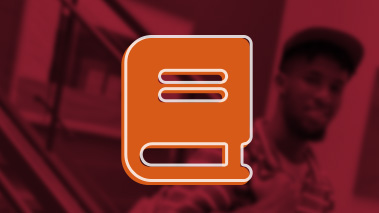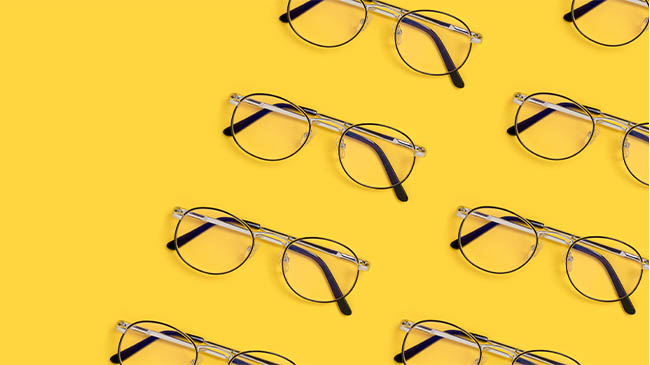Opticianry
- Associate of Applied Science (A.A.S.)
Program Snapshot
Your Learning Options
In-Person, Hybrid, Online
65 Credit Hours
Estimated Time to Complete
2 years (5 full-time semesters)
In-State Tuition Per Credit Hour
$176.00 | Calculate your costs
Why Opticianry?
Discover a blend of healthcare, laboratory precision, fashion, and business acumen in the Opticianry industry, turning prescriptions into stylish choices.
- Be part of the only opticianry degree program in Virginia, providing exclusive opportunities in the state.
- Achieve your academic goals more easily with our online and in-person learning options. Tailored to accommodate your busy work/life schedule, ensuring accessibility.
- Learn from highly qualified instructors with real-world industry experience.
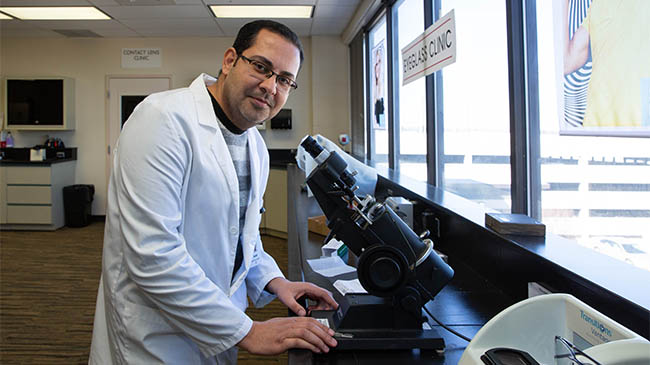
Paying for College
We are committed to using all of the available funds to help you gain access to a college education. In fact, more than 91% of our students graduate without any educational debt. In 2023, Reynolds Community College students received over $21 million dollars in grants, loans, work-study and scholarships with the average aid awarded totaling over $4,000 per student.
Payment plans are offered to break down tuition payments. Textbook Assistance and Laptop Lending Programs are also available. Be sure to explore all the types of financial aid available as well!

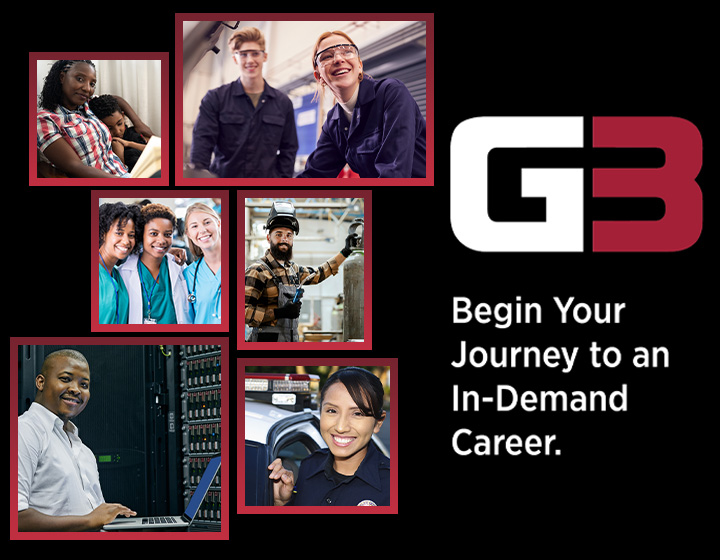
Get a Skill. Get a Job. Get Ahead.
G3 financial assistance at Reynolds can help cover tuition for select programs like this one! Starting something new or changing a career path can be scary, but if you want to earn workplace certifications or an academic degree that leads to a career, G3 tuition assistance can help remove the financial barrier of going to college.
Why Reynolds?
We are more than a community college.
Reynolds is the key that unlocks the door to your academic and professional success. Here you will find a safe place to start. We will help you explore, dream, succeed, try, and try again. Our amazing faculty and highly personalized advisors, your Reynolds Navigators, are well known for guiding you to discover that "aha moment.” That means an outstanding college experience, less debt, more freedom, and a solid start on your future.
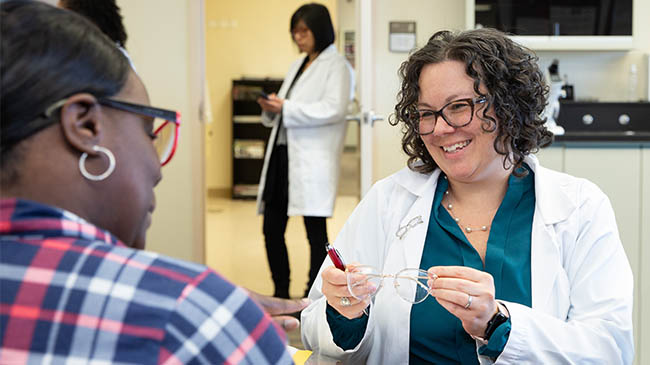
Study in a field with high demand, where jobs are secured before graduation, and many students work while in the program. Explore diverse career paths, including licensed optician, optical practice manager, contact lens specialist, and more.
Rest assured of the quality of your education with our program accredited by the Commission on Opticianry Accreditation.
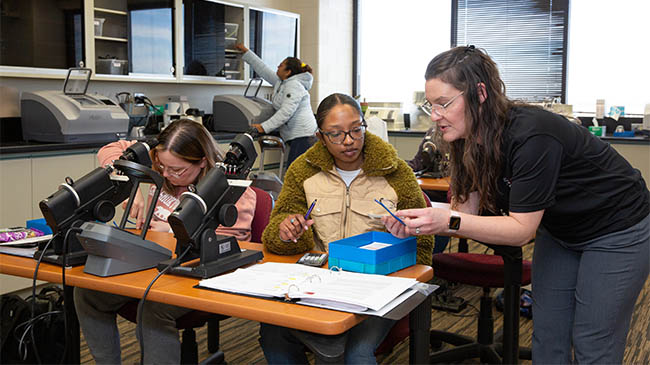
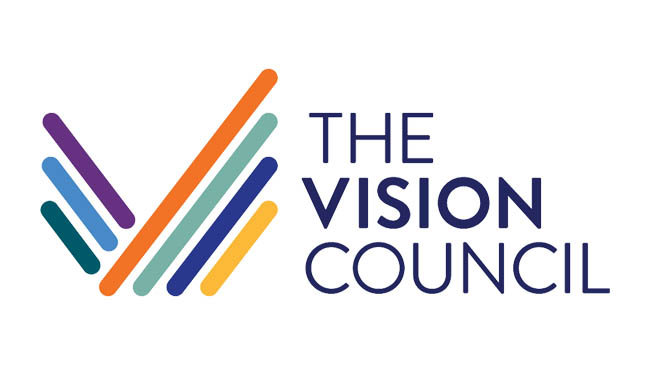
Access industry-sponsored scholarships through Vision Council, aimed at supporting underserved populations. Explore various avenues for financial support to pursue your academic goals.
Class Highlights
OPT 154 - Optical Business Management
Learn essential management and leadership skills, along with the analysis, creative thinking, judgment, planning strategy, and implementation skills necessary for today's optical business challenges.
OPT 273 - Contact Lens I
Explore basic concepts and techniques of contact lens fitting, design, materials, and learn the terms and lingo used in the industry.
OPT 160 - Optical Dispensing Theory I
Learn the skills necessary for becoming a dispensing optician including frame and lens materials, frame and lens selection, and adjustment techniques.
Program Roadmap
Get all the details on our Opticianry program, including class sequences, admission requirements, financial considerations, and more.
Additional Program Information
PURPOSE: The Opticianry program is designed to prepare individuals in the art and science of all phases of the making and fitting of eyeglasses and contact lenses: surfacing, finishing, eyeglass dispensing, contact lens fitting, and dispensing.
OCCUPATIONAL OBJECTIVES: Graduation from the program may lead to one of the following occupational goals: Optician, Private Practitioner, Ophthalmic Dispenser, Optical Laboratory Manager, Contact Lens Technician, Branch Manager, Optical Laboratory Technician, Ophthalmic Sales Representative, and Ophthalmic Research Technician.
PROGRAM OBJECTIVES: Students who complete the Opticianry AAS degree will be expected to:
- Demonstrate theoretical and technical optical knowledge at a level of a licensed optician in the state of Virginia and other states requiring accreditation with similar requirements.
- Demonstrate clinical optical skills at a level of a licensed optician in the state of Virginia and other states requiring accreditation with similar requirements.
- Demonstrate clinical competency in basic contact lens fitting.
- Demonstrate entry-level business skills for the opticianry profession.
ADMISSION REQUIREMENTS: General college curricular admission.
PROGRAM NOTES: Students admitted into this program will be approved for entry into major/clinical courses (Optical Theory I or higher) when they have satisfied the following requirements:
- Applicants must meet with the Department Chair to review their records and to discuss the requirements of the program and a career in Opticianry.
- It is also recommended, but not required, that students have completed one unit each of high school algebra, biology, and physics.
Students acquire direct patient-related practical skills by taking eyeglass and contact lens clinical coursework at clinical sites assisting customers. All students must complete an Assumption of Risk agreement prior to taking any clinical courses. Courses in the program may be offered on campus or online. Students in the online program must attend mandatory clinical classes offered at an approved facility. Exams and major assessments must be taken in an approved, proctored environment as determined by the program faculty.
Graduation from this program prepares one for the licensing examination and contact lens fitting endorsement given by the Virginia State Board of Opticians. This accredited program is also approved by other state licensing boards.
FINANCIAL REQUIREMENTS: In addition to the regular college tuition and fees, the following expenses may be required for the Opticianry program:
| Approximate textbook costs for program | $700-800 |
| Eye examination (by the 4th semester) | $35-85 |
| Personal pair of safety glasses | $15-50 (Non-Rx safety eye wear is available for on-campus labs.) |
| White laboratory coat | $20-45 |
| Name badge | $8-10 |
| Mailing costs (for distance clinical courses only) | varies by location* |
| Testing center fees (for distance clinical courses only) | varies by location |
| Optical tools or equipment (for distance clinical courses only) | varies by location** |
* Online students are required to take proctored exams and complete projects to be sent back to the college throughout the curriculum. Students must have an approved proctor, and, if there is a fee, students are required to pay for the services they decide to use.
**Online students in a clinical setting must have access to specific optical tools and equipment in order to successfully complete coursework. Dependent upon the clinical site, students using off-campus locations may need to purchase tools or equipment if they do not have access to them at their approved location.
NOTE: The above costs are approximate, clinical site dependent, and subject to change.PROGRESSION THROUGH THE PROGRAM:
- Students who receive a final grade lower than “71” in any of the Opticianry courses must repeat the course and gain permission from the Department Chair to continue in the program.
- Reynolds relies on affiliation agreements with community agencies to provide clinical education opportunities for their students. The rapid changes in health care law, standards of practice, technology, content of credentialing examinations, and availability of qualified faculty increasingly necessitate sudden changes in the program’s course content, policies, procedures, and course scheduling. As a result, the college cannot guarantee every student continuous and uninterrupted clinical and course instruction as outlined in the printed catalog curriculum for this program. Circumstances beyond the control of the college may necessitate the postponement of course offerings or changes in the sequencing and/or location of scheduled courses or clinical assignments. Additionally, the college may have to change the instructor for courses after instruction has started.
ANNUAL PERFORMANCE DATA FOR OPTICIANRY GRADUATES: The following table presents the pass rates on the first attempt for certification/licensure exams and employment rates for Reynolds opticianry graduates for 2019-2023.
| 2019 | 2020 | 2021 | 2022 | 2023 | |
|---|---|---|---|---|---|
| American Board of Opticianry (ABO) | 100% | 100% | 100% | 100% | 100% |
| National Contact Lens Examiners (NCLE) | 100% | 100% | 100% | 100% | 100% |
| Virginia State Board for Opticians | 100% | 100% | 100% | 100% | 100% |
| Employment | 100% | 93% | 100% | 100% | 89% |
The following table indicates how many Reynolds Community College Opticianry students entered the program and then graduated during the past 4 years, passed national certifications, state board exams and found employment within the field. Data from the most recent graduating class is still being collected as students may not complete state and national examinations until the following spring term.
| Graduation Year | Starting Class Enrollment | Number of Students Graduating | Graduating Percent |
|---|---|---|---|
| 2020 | 18 | 14 | 78% |
| 2021 | 17 | 12 | 71% |
| 2022 | 17 | 12 | 71% |
| 2023 | 28 | 16 | 57% |
The following tables indicate the number of Opticianry graduates that took and passed national certifications, state board exams and found employment following graduation. It should be noted that this data is recorded within 10 months of their graduation and some graduates decide not to take their licensure exams within that timeframe and/or continuing their educational journey.
| Class | Sitting for Exam | Passing | Percent Passing on 1st attempt |
|---|---|---|---|
| 2020 | 8 | 8 | 100% |
| 2021 | 8 | 8 | 100% |
| 2022 | 10 | 10 | 100% |
| 2023 | 10 | 10 | 100% |
| Class | Sitting for Exam | Passing | Percent Passing on 1st attempt |
|---|---|---|---|
| 2020 | 3 | 3 | 100% |
| 2021 | 1 | 1 | 100% |
| 2022 | 1 | 1 | 100% |
| 2023 | 1 | 1 | 100% |
| Class | Sitting for exam | Passing | Percent Passing on 1st attempt |
|---|---|---|---|
| 2020 | 7 | 7 | 100% |
| 2021 | 8 | 8 | 100% |
| 2022 | 9 | 9 | 100% |
| 2023 | 9 | 9 | 100% |
| Year | Percentage |
|---|---|
| 2020 | 93% |
| 2021 | 100% |
| 2022 | 100% |
| 2023 | 94% |
ACCREDITATION: The Opticianry program is accredited by the:
Commission on Opticianry Accreditation
229 East 85th Street #194
New York, NY 10028
coaccreditation.com
